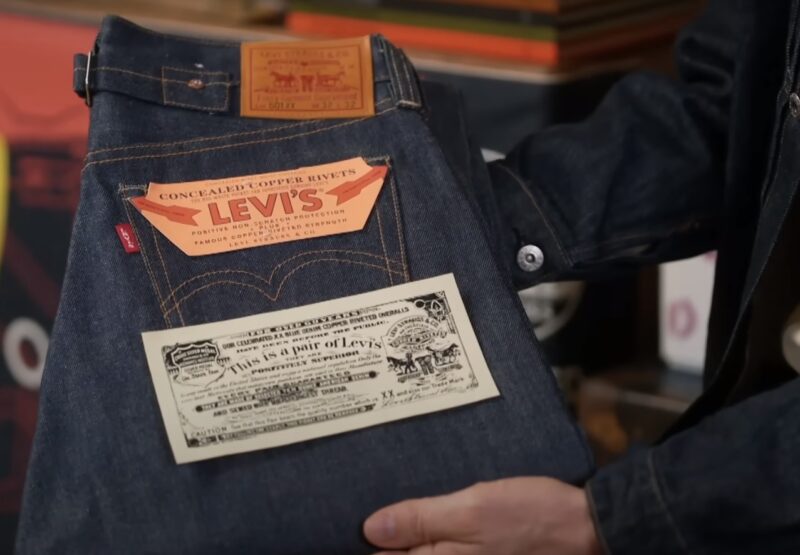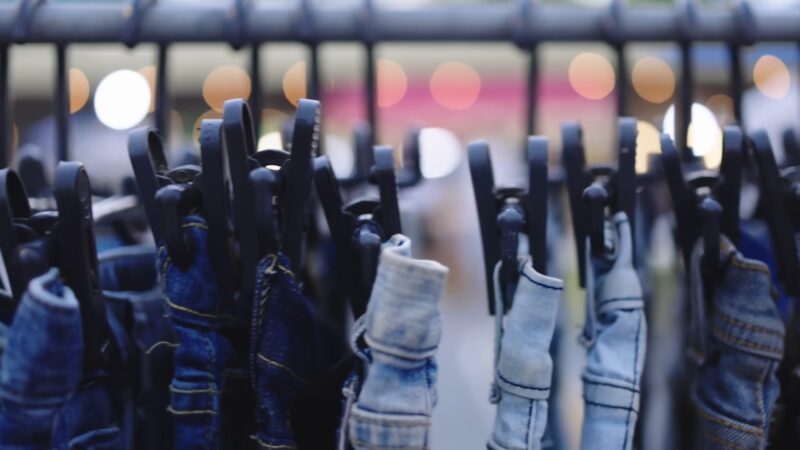In the ever-evolving world of fashion, few items have stood the test of time as the iconic Levi’s jeans. With a legacy spanning almost 150 years, Levi’s has once again made a groundbreaking move by merging its timeless appeal with a commitment to sustainability. As we get into the journey of these iconic jeans, we’ll explore how Levi’s is setting a new standard for the fashion industry, ensuring that style and sustainability go hand in hand.
A Brief History of Levi’s 501 Jeans
The Levi’s 501 jeans have a rich history that dates back to the late 19th century. Born out of a need for durable workwear, these jeans have evolved over the decades, adapting to the changing times while retaining their iconic status.
The Birth of a Legend
The Levi’s 501 jeans were not just a fashion statement; they were a solution. In the late 1800s, workers were in dire need of long-lasting trousers that could withstand the rigors of their jobs. Levi’s answered this call by introducing the 501 jeans, which quickly became synonymous with durability. Over the years, these jeans have witnessed countless moments in history, from the gold rush era to the rock ‘n’ roll revolution, solidifying their place in the annals of fashion.
Sustainability Meets Durability
Fast forward to the present day, and Levi’s is once again leading the charge, this time with a focus on sustainability. With the slogan “Buy Better. Wear Longer”, the brand is emphasizing the importance of investing in quality over quantity. By producing jeans that last longer, Levi’s is not only reducing waste but also promoting a culture of conscious consumption. The recent campaign by AKQA San Francisco beautifully encapsulates this message, taking viewers on a journey through the decades with a single pair of jeans, highlighting the brand’s commitment to durability and sustainability.
The Timeless Appeal

One of the standout qualities of Levi’s jeans is their timeless appeal. Whether it’s the 1960s or the 2020s, a pair of Levi’s has always been in vogue. But what is it about these jeans that make them so universally loved?
A Legacy of Fashion and Function
Karen Riley-Grant, the global CMO at Levi’s, perfectly sums up the brand’s enduring appeal: “A pair of Levi’s ages beautifully. They’re timeless and versatile, yet fashionable—no matter the decade.” This sentiment is echoed by countless Levi’s enthusiasts around the world. Whether you’re a rockstar, a farmer, or a fashionista, a pair of Levi’s fits seamlessly into your wardrobe, offering both style and functionality.
The Evolution of the 501 Design
While the core elements that made the 501 jeans iconic remain unchanged, Levi’s has never shied away from innovation. The brand recently introduced an updated design for the 501, ensuring that it remains relevant for today’s generation. Notable personalities like YouTube host Hailey Bieber, Korean artist Peggy Gou, and British athlete Marcus Rashford have come on board to promote the new design. While the signature straight cut and the iconic Red Tap on the back pocket are still there, the revamped jeans offer a more comfortable fit, proving that Levi’s is always looking ahead, even as it honors its rich past.
Levi’s Commitment to a Sustainable Future
Sustainability is no longer just a buzzword; it’s a necessity. As the world grapples with the challenges of climate change and environmental degradation, brands like Levi’s are stepping up to make a difference.
The 150th Anniversary: A Milestone of Sustainability
As Levi’s gears up to celebrate its 150th anniversary, the brand is not just looking back at its illustrious history but also charting a course for the future. The introduction of the sustainable 501 jeans is a testament to Levi’s commitment to creating a better world. By promoting the idea of “less waste” and encouraging consumers to “Buy Better. Wear Longer”, Levi’s is setting a benchmark for other brands to follow.
Celebrities Championing the Cause
The new sustainability-themed campaign has garnered the support of several celebrities who are using their platform to amplify the message. From showcasing vintage 501s to promoting Levi’s Secondhand, these influencers are playing a pivotal role in driving home the importance of sustainable fashion. Their involvement underscores the fact that sustainability is not just a trend but a movement that’s here to stay.
Frequently Asked Questions (FAQ)
1. How does Levi’s ensure the sustainability of their jeans?
While the article touches on the “Buy Better. Wear Longer” campaign, Levi’s also incorporates sustainable practices in sourcing, manufacturing, and distribution. They use less water, promote recycling, and partner with suppliers who share their commitment to the environment.
2. Are sustainable jeans more expensive than regular jeans?
Sustainable jeans might have a slightly higher price point due to the ethical and eco-friendly practices involved in their production. However, their durability ensures they last longer, offering value for money in the long run.
3. How can I ensure the longevity of my Levi’s jeans?
To maximize the lifespan of your jeans, it’s recommended to wash them less frequently, use cold water, and air dry. This not only preserves the fabric but also reduces energy consumption.
4. Does Levi’s have other sustainable clothing lines?
Yes, apart from the 501 jeans, Levi’s has been steadily introducing other sustainable clothing items, including jackets, shirts, and accessories, all made with the same commitment to the environment.
5. How does buying sustainable jeans contribute to a better environment?
By supporting sustainable jeans, you’re reducing the demand for fast fashion, which often leads to environmental degradation. Sustainable jeans use fewer resources, produce less waste, and promote a culture of conscious consumption.
Final Words
The journey of Levi’s 501 jeans from a durable workwear solution to a beacon of sustainable fashion is truly inspiring. As consumers, our choices have the power to shape the future of the planet. By choosing sustainability, we’re not just making a fashion statement; we’re making a statement for the future.
